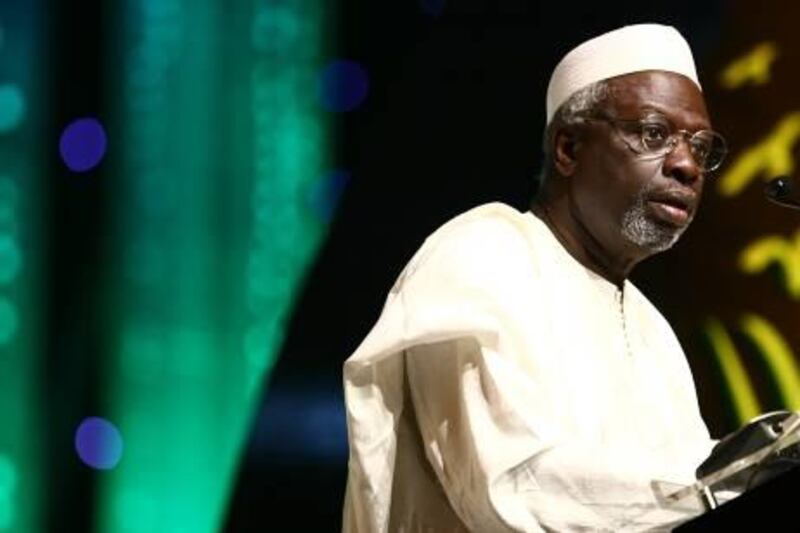ABU DHABI // Bolstering the domestic date palm industry could be a cornerstone of the UAE's future food security, according to United Nations food experts.
"The Middle East, North Africa and Sahel have great potential to use dates as a solution for feeding the population and offering income," Jacques Diouf, the director general of the UN Food and Agriculture Organization (FAO) said on the sidelines of the Khalifa International Date Palm Awards yesterday.
Date palm harvests account for two-thirds of the income for people living in the desert, according to Mr Diouf.
Additionally, the combined negative effects of water scarcity and climate change on the agriculture industry may make dates, which can grow in harsh climates, more important to the world's future food needs.
Worldwide date production has increased considerably in the past three decades, rising from 1.8 million tonnes in 1963 to 6.7 million in 2003, according to the FAO. Technologies such as tissue culturing, genetic modification and selective breeding have a huge potential to improve the yield of date plants, he said.
He said that more and higher yields translate to new jobs in processing and packaging factories.
Dates are already big business in the UAE. The domestic industry earned nearly Dh30 million in 2005, with production estimated to have grown since then at a rate of 15 per cent per year.
The UAE is a major date exporter to countries such as India, Indonesia, Malaysia and Pakistan.
According to Sheikh Nahyan bin Mubarak, the Minister of Higher Education and Scientific Research, the UAE has long focused on the "value of the date palm to achieve balanced and sustainable development".
The UAE now accounts for six per cent of the world's dates, making it the seventh-largest date producer. There are more than 40 million palm trees in the country.
The Date Palm Research and Development Unit, owned and financed by United Arab Emirates University, has helped boost the UAE's production of plant materials. The lab turns out around 150,000 cultured date palms a year. Since it opened in 1993, it has produced more than 1 million trees.
Members of the centre are on the board of trustees of the awards programme, an annual event that honours advancements and research in the field of date palm production.
According to Sheikh Nahyan, the awards act as a "strong incentive" to encourage researchers to develop new farming methods and improve the "economic benefits of the date palm".
This year, eight winners were selected from 131 entrants - up from 67 last year - from 24 countries. Award winners received Dh300,000, with runners-up granted Dh200,000. The selection committee withheld awards in two of the 10 categories.
Globally, there is a pressing need to develop new agriculture methods, as the world's food supply comes under pressure from climate change and population growth.
In January, the UK report Global Food and Farming Futures stressed that investment in new technologies would be vital if the world is to be able to feed itself by 2050.






